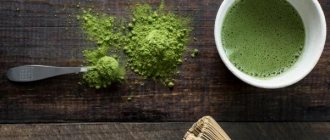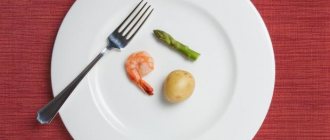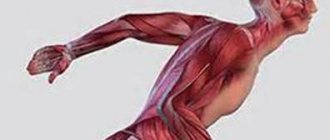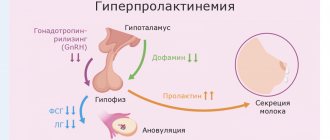It would seem that losing excess weight and staying slim is simple. Nutritionists and trainers give hundreds of tips, the essence of which boils down to one thing - you need to move more and eat less. And if observance of the first commandment usually does not raise questions, then with the second everything is a little more complicated.
Increased appetite is a problem that most people who lose weight face. Most often, these are women who have tried various diets, proper nutrition and calorie counting, but invariably broke down and returned to their usual diet. The reason for this is the feeling of hunger that constantly haunts them. It becomes more and more difficult to control your appetite, and even the achieved result in the form of lost kilograms is no longer motivating. However, it is still possible to lose weight without feeling hungry. You need to follow some rules that will help reduce your appetite. Thanks to them, the process of losing weight will bring only positive emotions, and annoying breakdowns will remain a thing of the past.
Rule 1. Get rid of unnecessary things
The desire to eat something will be much more frequent if you know that your favorite ice cream is in the refrigerator and chocolates in the cabinet. You should get rid of temptations without regret (but only without eating all the sweets in the house the day before starting the diet). Simply throw away unwanted foods and replace them with healthy ones. No need for extra temptations! There should be only a minimum amount of food in the refrigerator - even in the event of a sudden attack of hunger, you will not get enough of the “forbidden” food. You should not justify yourself by the fact that, besides you, other family members live in the house. Getting rid of food waste will benefit both adults and children. Sweets for children can be replaced with healthy analogues, and the husband, if desired, can enjoy cookies outside the home. Ideally, you need to enlist the support of loved ones and switch to healthier eating as a family.
How to satisfy hunger without food using traditional methods
Herbal teas and decoctions have different qualities, having one or another effect on the human body. There are also those that help overcome increased gluttony.
Decoction of mint and parsley
Mint in any form is an excellent way to satisfy hunger without food. It could be:
- mint-flavored toothpaste - regular brushing of teeth suppresses the desire to “intercept” something;
- mouth rinse that is easy to make at home. Add 30 drops of mint tincture (sold in pharmacies) into a glass of boiled water. Use after every meal and you will feel full longer;
- warm tea with fresh mint leaves and a slice of lemon - they are good for blocking the evening desire to eat;
- mint sprigs are a life-saving remedy in extreme cases, when you absolutely need to hold out until lunch. Chew some fresh herbs and get a reprieve for an hour.
Parsley works similarly. It can be brewed (pour and boil for 15 minutes) and drunk as tea or chewed on the leaves.
Honey-lemon mixture
Warm water with a slice of lemon should be included in your daily diet on an ongoing basis. We talked about the benefits of warm water above, and lemon is a source of vitamin C and citric acid, which promote the breakdown of fats.
Honey has a calming, relaxing effect, and also provides glucose, which, when entering the blood, sends a signal to the hypothalamus about satiety. A glass of water with lemon and honey before bed will help you get through the night peacefully.
Rule 2. Don't starve
The most common reason for breaking a diet is too strict restrictions. A very large calorie deficit will really help you lose weight quickly, but it is impossible to stick to such a diet for a long time. After a few weeks of a low-calorie diet, you may find yourself devouring an entire pizza or cold borscht straight from the pan alone. Frequent attempts to lose weight in this way over time lead to eating disorders - anorexia, bulimia, orthorexia. Even if a person manages to maintain a diet with a large calorie deficit for a long time, he will have to face another problem. Over time, his metabolism will slow down so much that despite the meager diet, weight loss will stop. He falls into a “diet trap” - the weight will quickly return when trying to slightly increase caloric intake. Even if you have excellent willpower, do not use low-calorie diets. The calorie deficit should be small, and ideally it should be created through physical activity (sports, walking).
Why does metabolism fail?
Most often, the cause is an unhealthy lifestyle, primarily irregular and suboptimal nutrition.
- You can plan 5 or 6 small meals daily consisting of appropriate proportions of complex carbohydrates, proteins and fats.
- On average, it is normal to eat every 3 hours.
- Do not forget that too long breaks lead to switching to emergency mode.
The body constantly requires food to store in the form of fat tissue. For the same reason, you should not use too strict diets.
Rule 3. Don't neglect vitamins and supplements
Spend your money and buy quality medications - even with a balanced diet, most of us are deficient in vitamins and minerals. Sometimes increased appetite and the desire to eat a certain product can be associated precisely with a lack of iron, zinc, silicon, and so on. Pay attention to special supplements that help reduce appetite. Thus, chromium picolinate helps stabilize blood sugar, helps to more effectively lose weight and keep appetite under control. Many people note that after several days of taking it, their cravings for junk food, especially sweets, have significantly decreased. Grape seed oil, fish oil, casein protein, and so on have a similar effect. Thanks to special supplements, dietary restrictions will be tolerated even easier.
How to distinguish hunger from the desire to enjoy a treat?
In most cases, food consumption is associated with the habit of making multiple unplanned snacks, stress eating, or getting gastronomic pleasure from delicious dishes, regardless of whether you feel hungry or not. This is facilitated by numerous grocery stores, bakeries, confectioneries, restaurants, fast food cafes, etc. The appetizing aromas and appearance of finished products affect the brain of each of us. In response, the brain sends impulses that it is time to start eating, although the body does not yet feel the need for it.
To reduce the number of unnecessary meals, you should learn to distinguish the feeling of real hunger from the desire to get a dose of pleasure from food due to habit or due to the influence of factors that stimulate appetite. To do this, try to analyze how you feel at the moment when you decide to go and eat something. As a rule, the answer to the question will be the following sensations:
- The desire to swallow any food, rumbling in the stomach or an intense feeling of emptiness in the stomach.
- The absence of physical manifestations of hunger and the mental selection of delicacies that could bring moral satisfaction.
In the first case, we are talking about the body’s real need to obtain energy from food, and in the second, it is the reaction of your brain to external stimuli, habit and even dependence on food, especially in moments associated with an outburst of emotions.
Rule 4. Water, water and more water
It’s trite, but a lack of water really leads to an increase in appetite and consumption of more food. Water reduces hunger by filling the stomach. In addition, it helps improve metabolic processes and remove decay products. The feeling of hunger is often confused with thirst: after drinking a glass of water, it turns out that you really didn’t want to eat. It has been scientifically proven that by increasing the consumption of clean water, a person reduces weight by several kilograms per year, even without changing anything in his usual diet. There is no need to force yourself for the 3-4 liters of water per day recommended by some experts - the norms are individual for everyone. Drink a glass of water every time you feel hungry - if after 15-20 minutes you still want to eat, you can start eating.
Water for weight loss: how to drink water so you don’t want to eat?
Everyone knows a simple and effective rule: you need to drink a lot of clean water - from 1.5 to 2.5 liters per day . But how many people follow it? Often we simply brush aside this postulate and simply force ourselves not to eat. And in vain, because water helps very well in getting rid of false feelings of hunger, the main thing is to know how to drink it correctly.
- Drinking a glass of slightly warm water immediately after sleep will make the body wake up and invigorate, and start the metabolism.
- Often our body experiences thirst, which we mistake for hunger and eat instead of drinking clean water. If you feel a sudden attack of hunger, drink a glass of regular water - without gas or sugar.
- Make it a rule to drink a glass of water 30 minutes before meals and 40-60 minutes after meals - this way you will not eat too much and are guaranteed to improve your metabolism.
Scientific fact : nutritionists have noticed that cool melt water can satisfy even a severe attack of hunger. The same effect will come from drinking a little salted clean water.
Rule 5. Eat more protein
Protein-rich foods take a long time to digest, contain few calories and help reduce appetite. They should be included in every meal, and dinner should be rich in protein in particular. At least a third of the diet should consist of these products: Meat. In addition to the well-known chicken breast, turkey and rabbit fillets, as well as beef and veal, contain a lot of protein and little fat. Seafood. Fish, squid, crabs contain about 20% proteins, which are easily digestible. Dairy products. Cottage cheese, kefir, natural yogurt, cheese. Choose dairy products without sugar or other additives that whet your appetite. Eggs. A cheap source of quickly digestible protein. Legumes. Beans, chickpeas, lentils, peanuts. Soy. An alternative for people who do not consume meat, eggs or milk. Nuts. The leaders in protein content are almonds, walnuts and pistachios. Some cereals. The most satisfying protein products are of animal origin. By regularly including meat, fish and eggs in your diet, you can reduce your appetite and stop overeating.
Sports to get rid of hunger: the most effective exercises
It has been proven that ordinary exercise done during a hunger attack helps reduce appetite. Even simple exercises distract you from thoughts about food and also help burn calories. We offer some of them.
"Wave".
- Lying on your back with your knees bent, place your feet on the floor.
- Place one palm on your chest, the other on your stomach.
- As you inhale, straighten your chest as much as possible and draw in your stomach.
- As you exhale, draw in your stomach and, if possible, your chest.
- Observe the natural rhythm of breathing, and keep your muscles in good shape, do not strain too much. You can also perform this exercise standing or sitting.
After doing 30-40 approaches, you will notice that you don’t want to eat at all. Of course, you cannot replace the physiological need for food with a set of exercises, but it is quite possible to eliminate the appetite that appears inappropriately.
"Swallowing Air" . Remember your favorite childhood pastime - swallowing air followed by burping. This way you will not only get rid of the urges of false hunger, but also activate your intestinal muscles.
"Warming up the dimple above the upper lip" . This point is responsible for the feeling of hunger. Massaging it for 10-15 minutes can dull your appetite.
Breathing exercises are an excellent help in the fight against appetite, which has run rampant just like that.
Check out a set of exercises that are guaranteed to eliminate hunger pangs.
Rule 6. Avoid boredom
Oddly enough, we often eat simply out of boredom. When doing interesting things, people are less likely to think about food. They usually overeat not at work, not in a cafe, but at home, sitting in front of the TV. Therefore, the main recipe is to be busy. Find a new hobby, spend more time outside, get a pet. It is more difficult for those who do not work or work remotely. When the refrigerator is constantly available, meals “out of boredom” become more frequent. In this case, you can “deceive” yourself with green tea without sugar, black coffee, and cold water. As a last resort, eat healthy foods that contain a lot of protein and fill you up for a long time (dried meat, protein bars, cottage cheese).
Rule 8. Allow yourself weaknesses
If you can’t imagine life without sweets, pizza or sausage, then you shouldn’t completely exclude them from your diet - strict restrictions will eventually lead to a breakdown and eating the whole cake alone. Allow yourself your favorite foods once a week in small quantities (at one meal). This technique will serve as psychological relief and will make it easier to stick to the diet. Junk foods can make up up to 10 percent of your daily diet, and that's not a small amount. But most of the food should remain healthy - vegetables, fish, poultry, greens, and so on.
Rule 9. Increase physical activity
Even if you are a completely unathletic person and are not yet ready to go to the gym, a little physical activity will have a positive effect on your weight loss. Go for a long walk with your dog, climb the stairs to the 5th floor, do the simplest exercise, dance to your favorite music. Increasing physical activity will help: burn tens and hundreds of additional calories; reduce appetite; feel healthier, slimmer and more confident. After playing sports, you are unlikely to overeat - you will simply feel sorry for the energy and time spent on training. The body will thank you - you will become slimmer and more graceful, your skin will tighten faster, and cellulite will disappear.
Rule 10. Avoid fast carbohydrates
Eating a large amount of foods containing fast carbohydrates leads to an increase in hunger, and subsequently to weight gain. They quickly enter the bloodstream and sharply raise sugar levels. Fast carbohydrates are found in the following foods: baked goods (bread, pies, etc.); confectionery products (sweets, waffles, chocolate bars); drinks (fruit juices, some alcohol, compotes); soft wheat pasta; potato; many fruits and dried fruits. All of the above foods do not have to be excluded from the diet. They can be eaten for breakfast, in small quantities. In this case, you should give preference to fruits (which contain fiber, vitamins and minerals) and dark chocolate. Slow carbohydrates fill you up for a long time and are low in calories. Products that contain them can be consumed for breakfast, lunch and dinner. Unsweetened vegetables (zucchini, all types of cabbage, tomatoes, cucumbers, celery, eggplant) can be eaten in large quantities without damaging your figure.
What foods reduce appetite?
Vegetables and fruits contain useful substances, such as fiber and vitamins, that help reduce hunger. Thus, figs are an excellent substitute for all kinds of baked goods and chocolate. By consuming this product, you can forget about the body’s need for slow carbohydrates, which are quickly absorbed, causing excess weight. Figs are covered with glucose crystals, which makes them very sweet and easily digestible. In addition, you can reduce your appetite by including the following fruits in your diet:
- Grapefruit – this representative of citrus fruits is rich in vitamins and minerals and helps improve cellular respiration.
- Cherries are a source of substances that remove toxins from the body. For this reason, cherries are used for weight loss and cleansing of the digestive tract.
- Lemon helps burn harmful fats, which is why it is included in the list of allowed foods in almost all modern diets. Due to its high acid content, lemon effectively improves protein metabolism.
- Pineapple – contains enzymes, B vitamins, helps speed up metabolism and accelerate the digestion of food.
- Orange – prevents the development of atherosclerosis. Due to the fact that the product (like all citrus fruits) irritates the gastric mucosa, it is contraindicated for peptic ulcers and gastritis.
- Banana – contains potassium, magnesium and other trace elements. Does not provoke an exacerbation of peptic ulcers, helps against heartburn. Bananas are useful for losing weight because they maintain the required level of sugar in the blood and dull the appetite.
- Grapes - ballast substances are found in the skin of the product, which help normalize stool and remove excess fluid.
- Apples – due to their low glycemic index, apples maintain stable blood glucose levels and prevent obesity.
Vegetables are also no less healthy, but they need to be steamed. In first place in terms of nutrient content is cabbage (Brussels sprouts, white cabbage). The product contains few calories, burns fat, helps reduce appetite and lose weight. Cabbage contains tartronic acid, which prevents the deposition of fat in the body. In addition, the benefit of the product lies in its long digestion, which ensures a long-term absence of hunger.
Second place goes to zucchini. The product is rich in magnesium and carotenoids. Zucchini retains beneficial substances in the body, promotes weight loss, and reduces cravings for overeating. Last on the list of healthy vegetables is potatoes. It contains potassium and helps break down fats in the body. Eating fried potatoes is prohibited due to their high calorie content.
Don't forget about dairy products. When losing weight, it is better to consume kefir or natural yogurt without additives. It is recommended to exclude butter and whole milk. In addition, eating two chicken eggs for breakfast helps reduce appetite. Approximately 30–40% of their energy value is spent on the absorption of proteins. As a result, the body receives a product with a negative calorie content.
Rule 11. Don't forget about fats
In pursuit of a beautiful figure, some completely eliminate fats, which are very high in calories. You can’t do this: fats are necessary for the body. They make food tastier and prolong the feeling of fullness. But not all fats are equally healthy: you should prefer foods rich in omega-3: boiled eggs, in the form of an omelet; avocado, coconut; nuts - walnuts, almonds, pistachios, pecans (a handful per day); fatty fish - salmon, pink salmon, tuna, mackerel; peanut; pumpkin seeds, sunflower seeds; olive, sesame and ghee oil; dairy products. But products containing “harmful” fats (margarine) should be kept to a minimum. These include fast food, chips, convenience foods, store-bought cakes and other baked goods.
Rule 14. Don't refuse, but replace
By replacing some foods, you can significantly reduce the caloric content of your diet. In this case, you won’t even notice the substitution - psychologically it’s much easier than giving up or cutting back on goodies. Sugar in tea, coffee and desserts is perfectly replaced by stevia or erythritol; instead of wheat flour for baking, you can buy flaxseed, almond, and buckwheat. If you can’t give up carbonated drinks completely, choose ones that don’t contain calories. You can make mayonnaise, cake and even sausage yourself using healthy and low-calorie ingredients.











